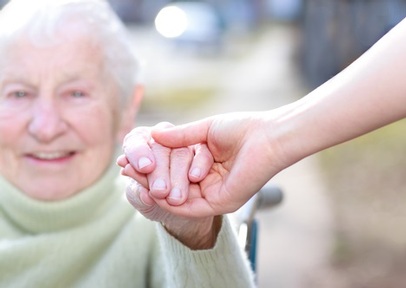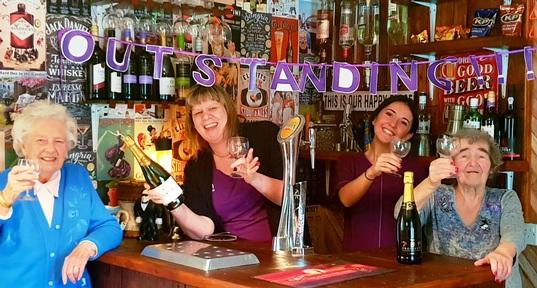Care homes championing human rights are more likely to be outstanding
Care homes which champion equality and human rights are more likely to be rated outstanding, according to the Care Quality Commission.

The care regulator claims there is a clear link between a provider’s quality of care and how well it treats its staff and residents in terms of human rights and treating them equally. In its resource Equally Outstanding, which it has developed to promote equality and human rights and show best practice, the CQC praises Shadon House in Gateshead, a care home run by Gateshead Council, which was rated outstanding in June last year.
Managers will do whatever they ask staff to do
‘Managers will not ask staff to do something they are not prepared to do themselves. This shows respect for staff at every level; good relationships with staff result in a good service to people staying in Shadon House,’ according to the CQC.
‘In addition, all staff are engaged – there are three handover sessions a day which include all staff. Staff are well supported with supervision, discussion at staff meetings and development sessions which include human rights topics such as Deprivation of Liberty (DoLs), confidentiality and duty of candour. All staff attend the sessions including staff such as the cleaners.’
Human rights not an expendable extra
Paul Corrigan, CQC non-executive director and Board Equality and Human Rights Champion, said: “There’s a clear link between the quality of care a service provides and whether the people who use it and its staff feel that their human rights are respected and they are treated equally.
“And equality and human rights will only become more important over time because of demographic and system change; research shows that money spent on reducing health inequalities is the most efficient way of improving health outcomes for a local population.”
He added: “When finances are squeezed, it may seem tempting to view work on equality and human rights as an expendable extra – when in fact it makes both ethical and business sense for this work to be more central than ever.”
The CQC also praised the care provider Dimensions Kent, which supports people with learning disabilities and autism in the UK which received an outstanding rating last December.
The CQC found ‘there was good staff awareness of human rights principles, such as dignity and autonomy’.
Rhidian Hughes, chief executive of Voluntary Organisations Disability Group, said: “CQC’s report provides a compelling case that, despite the financial challenges facing the sector, providers need a relentless focus on equality and human rights. The case studies and practical examples in CQC’s publication demonstrate what can be achieved. We can all learn from it.”
The regulator hopes the resource which has been developed in partnership with Care England, Healthwatch England, National LGBT Partnership, NHS Confederation, NHS Improvement, Race Equality Foundation, Social Care Institute for Excellence and the Voluntary Organisations Disability Group, will be used to help care providers focus more on equality and human rights and learn from other providers which have done this.
The CQC revealed that an analysis of its acute NHS hospital inspection reports showed that the proportion of positive comments made about the quality of care for people with a learning disability increased in line with the Trust’s rating.
Seventy-five per cent of hospices rated as outstanding had carried out some work on equality for disabled people, but only 55 per cent of other hospices had done so. Eighty-eight per cent of hospices rated as outstanding had carried out some work around equality for people of different religions and beliefs compared to 65 per cent of lower-rated hospices.
It also discovered from looking at the NHS staff survey and inpatient survey that where Black and Minority Ethnic staff experienced discrimination, there tended to be lower levels of patient satisfaction.
Equally Outstanding – equality and human rights best practice resource is available at: www.cqc.org.uk/EquallyOutstanding
Latest Innovative Care News
 13-May-19
'Pink drink' brain cancer treatment rolled out across NHS in memory of Baroness Jowell
13-May-19
'Pink drink' brain cancer treatment rolled out across NHS in memory of Baroness Jowell
 25-Apr-19
Louis Tomlinson helps 83-year-old who lost wife to dementia complete bucket list
25-Apr-19
Louis Tomlinson helps 83-year-old who lost wife to dementia complete bucket list
 22-Mar-19
UK's top care home handyman takes residents to pub for pie and pint
22-Mar-19
UK's top care home handyman takes residents to pub for pie and pint
 12-Feb-19
Michael McIntyre's jokes tested to see if they stop elderly catching flu
12-Feb-19
Michael McIntyre's jokes tested to see if they stop elderly catching flu
 07-Jan-19
'We were lucky to find it': Family's delight as care home is rated Outstanding
07-Jan-19
'We were lucky to find it': Family's delight as care home is rated Outstanding